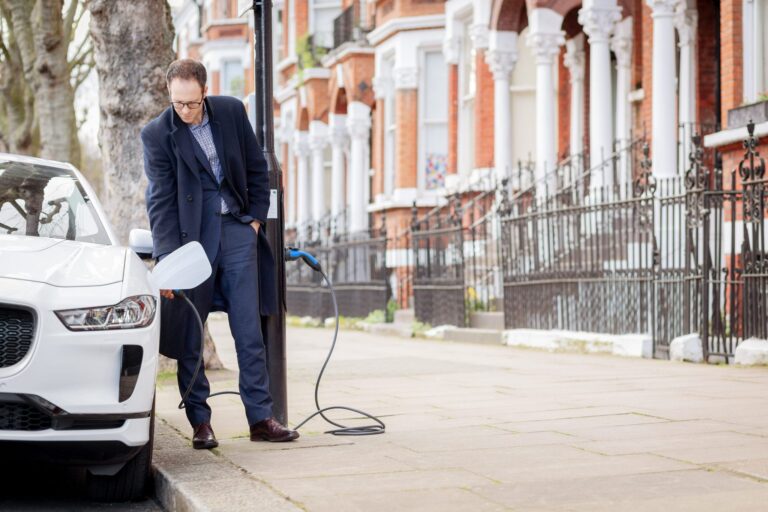The House of Lords’ Environment and Climate Change Committee has kicked off an extensive inquiry into the world of electric vehicles (EVs) with an evidence session that took place on Wednesday 13 September and featured key insights from industry leaders, including the National Grid and ChargeUK.
The inquiry focuses on the consumer experience of using EVs, covering areas such as home and public charging, government chargepoint targets and the state of the UK’s grid capacity.
The committee delved into various aspects of the EV ecosystem, aiming to gain a comprehensive understanding of the challenges and opportunities presented by this rapidly evolving technology.
The witnesses providing insights included Dr Russell Fowler from the National Grid, Steve Gooding from the RAC Foundation, Melanie Shufflebotham from Zapmap, Jonathan Marshall from the Resolution Foundation and Ian Johnston, CEO of Osprey Charging and Chair of ChargeUK.
The key discussion points included:
- Phase-out dates for EVs: One of the central topics of discussion was the feasibility of phase-out dates for petrol and diesel vehicles. Currently, 2.5% of electric and 4% of hybrid vehicles make up all vehicles types on the road, which raises questions about if reaching net zero by 2035 is achievable.
- Challenges in EV adoption: Witness testimonies highlighted several challenges, including the need for decreased EV prices, reducing manufacturing costs, ensuring fair access to EVs for lower-income households, and addressing the recyclability of older vehicles as they are phased out.
- Collaboration and rollout certainty: The need for collaboration among stakeholders in the EV ecosystem was emphasised. Ensuring a smooth transition requires coordination between the fleet market and the second-hand market to avoid leaving certain segments behind.
- VAT disparities: Witnesses pointed out that there is a substantial VAT disparity between public network charging and home charging, with the former being four times higher. Addressing this imbalance is crucial for encouraging EV adoption.
- Role of hybrids: The role of hybrid and plug-in hybrid vehicles in the transition to full EVs was discussed. With the increasing range of EVs, the necessity for hybrids is being questioned, primarily due to their high manufacturing costs. Hybrids, it seems, were initially introduced to ease the transition to EVs.
- 2030 phase-out dates: The committee explored the challenges surrounding the government’s target of phasing out internal combustion engine vehicles by 2030 and the associated planning and infrastructure hurdles.
- Charging infrastructure: Witnesses also discussed the challenges of planning, permitting, and deploying charging infrastructure, particularly motorway chargepoints, which are often bogged down in the planning system.
- Best-selling EVs: The popularity of EV models such as the Nissan Leaf and Tesla Model 3 in the UK was highlighted. Witnesses discussed the importance of open access to charging connectors and the need for both low-powered and high-powered chargers.
- Scotland’s initiatives: Scotland’s innovative approach to EV charging, including larger sites with bespoke weather protection, lighting, and security measures, was cited as a potential model for other regions.
- Government policy and planning: Witnesses underscored the importance of proactive government policies and planning for EV charging infrastructure, comparing it to the approach taken with conventional petrol stations.
- Accessibility and grid capacity: Ideally, charging an electric car should be as convenient as filling up a petrol/diesel vehicle. Ensuring accessibility, including contactless payment options, was discussed, along with concerns about grid capacity and supply-demand dynamics.
- On-street parking: Witnesses discussed solutions for individuals without off-street parking, emphasising the importance of local charging hubs to ensure accessibility for a wider range of users.
The evidence session provided valuable insights into the state of the EV landscape in the UK. It highlighted both the progress made and the challenges that lie ahead as the country strives to transition to a cleaner and more sustainable transportation system.
The committee’s inquiry serves as a critical step toward understanding how to accelerate EV adoption while addressing key issues related to pricing, infrastructure, and accessibility. As the UK continues on its path toward an electric future, these discussions will play a pivotal role in shaping the nation’s transportation landscape.
Innovations and achievements in electric vehicles and charging infrastructure will be highlighted and celebrated at the second annual CiTTi Awards on 21 November 2023 at the De Vere Grand Connaught Rooms in London. Visit www.cittiawards.co.uk to learn more about this unmissable event for the UK’s transportation sector – and to book your table today!





